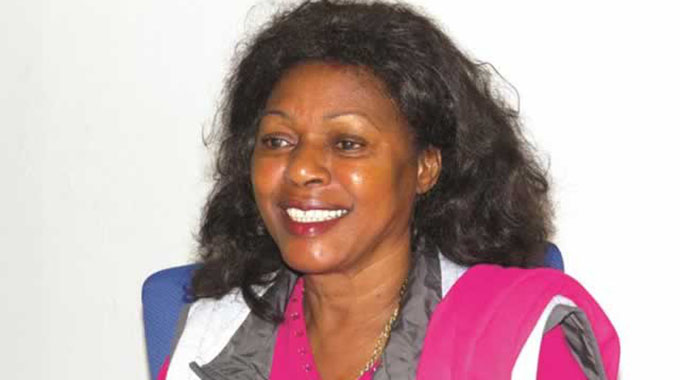Safe zones for women shrinking
Ruth Butaumocho Gender Forum
Two weeks ago, while driving home on a Friday night, I decided to stop at a popular joint in the neighbourhood for a drink. The idea was to delay and avert traffic jam. I scouted for parking space and after finding it, I settled among some patrons who seemed to be merrymaking. Having bought myself a drink, I sat on a couch and glued my eyes to the big screen to watch the re-screening of the match between my favourite team Chelsea and Norwich City that had been played the previous weekend.
I must have been in the joint for less than 10 minutes, when I eavesdropped on a conversation between two men, who were seated right opposite, where I was seated, while nursing my drink.
“Nhasi muno mauya hure nyowani, hausi kuona kuti rakapfeka rokwe here?,” (we have in our midst a new prostitute. Can’t you see she is wearing a dress?), said one of the guys, while pointing at me.
Apparently, I was the only one in a decent dress, with no make-up and spotting my traditional box cut.
On realising that I had got wind of the conversation, the guy who had boldly made his assumptions known to the whole joint that I was an inexperienced hooker trying her luck, immediately offered to buy me a drink and introduce me to his friends, my “potential clients.”
Taking a closer look at the guy, I realised that the guy — just like me — was coming from work, judging by the way he was dressed.
There was a professional man, making a stupid assumption that all the women found patronising a club were nothing but pathetic and desperate commercial sex workers, looking for clients.
I have often heard second and third-hand stories about women enduring this kind of intoxicating harassment and humiliation, but I had not come across such abusive situations.
I was imputed a prostitute simply because I had gone into a club to buy myself a drink and watch soccer, like what all professional men do after a hard day’s work.
I have since realised that my incident is not extraordinary.
There are more serious ones, where several women who have had to put up with untoward and often embarrassing actions some men get away with regularly in night clubs, making the spaces less welcoming for women.
Speaking with women of all ages whether in shops, department stores, in the streets and nightclubs, they told me they are regularly groped, verbally assaulted and harassed in bars, nightclubs and even in some upmarket hotels that are sprouted around the cities.
They say this kind of harassment does not matter how grotty or poshy the watering hole or joint is — it happens everywhere.
If anything, most public places, like food courts, open air joints, spin car festivals and other public events that draw both women and men together, have become an abyss for both sexual and physical harassment of women.
Research has shown that the abuse is even worse in the public transport system, particularly in the commuter omnibuses, where some conductors are in the habit of rubbing themselves against women.
So apart from the home, where else is a woman safe?
As a society should we stoop that low?
Should we put our moral and ethical considerations aside, and abuse our mothers and sisters whom we should be protecting?
The law enforcement agents do not make life easier for women either, as they often round women at night, accusing them of loitering around for the purposes of prostitution.
Any woman who walks home in the night, for whatever reason, is regarded a prostitute prowling around to get a client for the day, while police would never arrest a man for that, arguing that he would be coming from work or from other serious engagements.
As I was narrating my ordeal at work ,I was surprised by a colleague, by how he had the audacity to say that I got what I deserved.
According to him, “decent women” should not go to clubs or watering holes if the reason for being there isn’t to be an object of interest for men.
It is because of those societal attitudes from our brothers that safe zones for women are no longer guaranteed as women continue to be subject of abuse in different social environments.
Unlike before, women now need to constantly navigate where they can be or cannot be because of sexism and misogyny.
Everything from skipping the club, afraid to dance because of the threshold of harassment to deciding and mapping out routes to take in the hope for the least amount of street harassment, are just everyday activities for many women, and it shouldn’t have to be this way.
Different researches that have been carried out have since revealed that gender-based public harassment limits women’s access to public spaces and lowers their comfort level there.
It can cause people to “choose” less convenient routes and alter their routines; give up hobbies and change habits; and even quit jobs or move neighbourhoods or simply stay home because they can’t face the thought of one more day of harassment.
Harassment of any form should not be allowed to take place, worse still at a time Zimbabwe is looking towards the promotion and involvement of women in all sectors of the economy.
Rather than leering, cat calling, shouting sexually explicit comments, groping, stalking and saying all those demeaning derogatory and sexist remarks, let’s love, respect, protect and encourage women in our midst.









Comments